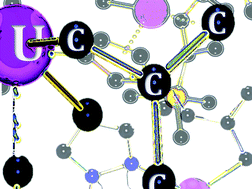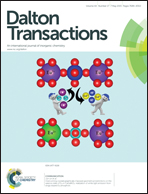Achievements in uranium alkyl chemistry: celebrating sixty years of synthetic pursuits
Abstract
Organouranium complexes containing uranium–carbon σ-bonds have been highly sought after since the initial exploration of these complexes during the 1950s. Since this time, a variety of uranium starting materials have been developed and alkylating reagents used in order to generate such species. Trivalent uranium alkyl compounds have recently moved past using the bis(trimethylsilyl)methyl ligand with the use of larger ancillary hydrotris(pyrazolyl)borate ligands. The uranium(IV) congeners are dominated by cyclopentadienyl ligands, but recent developments have shown that amides, alkoxides, and phosphines are also suitable ligand frameworks for supporting such species. A family of uranium(IV) alkyls formed via cyclometallation and neutral homoleptics have also been described. Highly reactive uranium(V) and (VI) alkyl complexes have recently been synthesized at low temperatures. The representative studies highlighted herein have helped to pioneer the field of organouranium alkyl chemistry.


 Please wait while we load your content...
Please wait while we load your content...